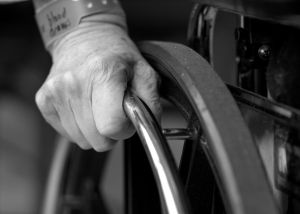It was announced this morning that six nursing home workers were arrested for playing a cruel prank on several residents at the Valley View Skilled Nursing Facility. According to a release from the California Attorney General’s office, the employees applied a slippery ointment cream over the bodies of seven elderly nursing home residents to make them “slippery” for the oncoming shift. It is believed that the residents were selected because all suffered from advanced dementia, and could not object to the mistreatment.
“As part of a cruel and shocking prank, these caregivers abused defenseless elders,” AG Jerry Brown said. “This is despicable behavior by people placed in a position of trust.”
After an investigation by the California Bureau of Elder Abuse, the district attorney’s office has filed a misdemeanor criminal charge against each employee for injury to elder or dependent adult; battery committed on elder or a dependent adult; conspiracy; and battery committed while on hospital property.
 California Nursing Home Abuse Lawyer Blog
California Nursing Home Abuse Lawyer Blog










